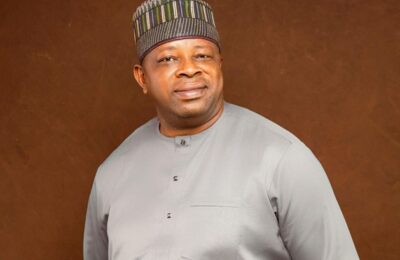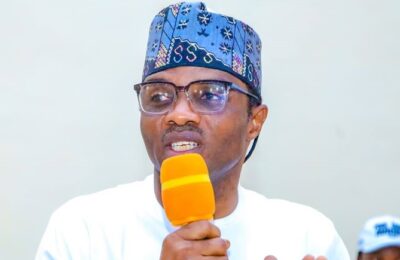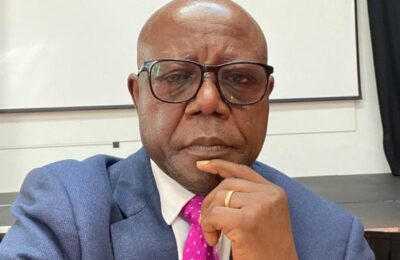The storm didn’t begin here, but its winds now blow through our yam barns, echoing through ancestral shrines and rustling the silence of once-proud palaces. From Ukraine’s burning plains to the melting glaciers of Antarctica, the aftershocks of global disasters now throb beneath the red soils of Igalaland. While the world watches Gaza burn and Silicon Valley rise, Igalaland quietly bleeds—in silence, in shame, in scattered shadows.
Yes, the distance between Idah and Israel is vast, but when fertilizer prices triple due to foreign wars and cassava rots in floodwaters caused by climatic madness, geography becomes a myth. The world is now a single room with many corners, and even the smallest knock on one wall is felt in the others. Igalaland, like an innocent child caught in adult battles, is paying for sins it did not commit. But worse, it is sleeping through the pain.
As the global economic pendulum swings violently, our people sit by the fire trying to roast fish that refuses to dry. Fuel prices fluctuates like morning chants. The dollar-to-naira rate has become a fable of frustration. The market women in Ejule, Ega and Odogwu now counts their coins with trembling fingers. What once took one basket of pepper to feed a household now devours three harvests.
Yet, while others adapt, innovate, and recalibrate, Igalaland remains caught between ancestral dreams and digital nightmares. In the wisdom of Igala philosopher, “Any land that refuses to listen to the drums of change will dance naked in the market of shame.” And shame, indeed, has made its tent among us.
Our youth now board buses to Lagos with empty pockets and big dreams, chasing mirages of prosperity. Some die in the desert sands between Kano and Agadez; others drown in oceans that do not understand Igala prayers. Those who survive return voiceless, broken, stripped of language and faith.
Climate change? That’s no longer white man’s English. The River Niger no longer smiles on fishermen. Floods swallow lands in Ibaji. The rains now mock our farming calendars. Our elders, who once predicted weather by observing the sky, are now silent. Even the sky itself seems confused.
Globalization has also broken our tongue. Our children now speak pidgin better than Igala. Netflix has replaced storytelling. The once-sacred Italo and Ogba festivals are now seen as backward rituals by youths who knows Ronaldinho, Lionel Messi, Davido and Cardi B etc but not their clan totems. The danger is not just cultural erosion—it is spiritual exile.
As an Elder once warned, “When the wind of civilization ignores the root, the tree falls with a foreign sound.” And we are falling. Slowly. Shamefully.
Technology, too, has widened the poverty line. While others create apps, we still gather under cashew trees and bush bars to debate whether electricity should be shared like yam. The world is advancing with AI and blockchain, but in Idah or Olamaboro, students still learn under mango trees. A people who cannot code the future will soon be deleted by it.
And then, the betrayal of leadership. Global economic debts contracted in Abuja fall on the thin backs of farmers in Ofu. Federal policies that feed Lagos starve Anyigba or Ankpa. Yet our politicians, fattened by silence, dance at funerals in blood-stained agbadas. Who will speak for the land? Who will cry when the drums of heritage are stolen?
As Igala sage Achadu Ega once lamented, “A kingdom that sells its voice will soon bury its name.” And our name is fading if we are not careful.
But there is a way out. Not easy. Not fast. But real. It begins with reclaiming identity, restoring memory, and reimagining the future. Our churches must become more than halls of echo—they must train minds and awaken warriors. Our traditional rulers must stop hosting ceremonies and start holding councils of renewal.
Our writers must write not for applause but for war—a war against ignorance, against dependency, against erasure. Inah Ocholi once thundered, “When God says write, the pen becomes a flaming sword.” Let every Igala pen become fire.
We must teach our children the stories of Ayegba Om’Idoko, not just Shakespeare or Lekki Headmasters. We must revive our language, document our history, digitize our culture, and defend our land with intelligence. Let the world know that we may be quiet, but we are not blind. We may be wounded, but we are not dead.
And finally, we must pray—not the prayer of convenience, but the prayer of revolution. As Bishop David Oyedepo said, “Destiny is not a miracle; it is a responsibility.” Let every Igala child grow with a burden to rebuild. Let every mother cry not just for food but for purpose. Let every father become a prophet, every leader a servant, and every youth a flame.
The storm is here. But storms do not destroy those who prepare. Even over the savannah, even under the fading sun, even when the gods seem silent—Igalaland can rise. If we rise.
For when the night grows darkest, the descendants- sons and daughters of Attah Ayegba Om’Idoko must remember: we were never born to kneel.
– Inah Boniface Ocholi writes from Ayah – Igalamela/Odolu LGA, Kogi state.
08152094428 (SMS Only)




